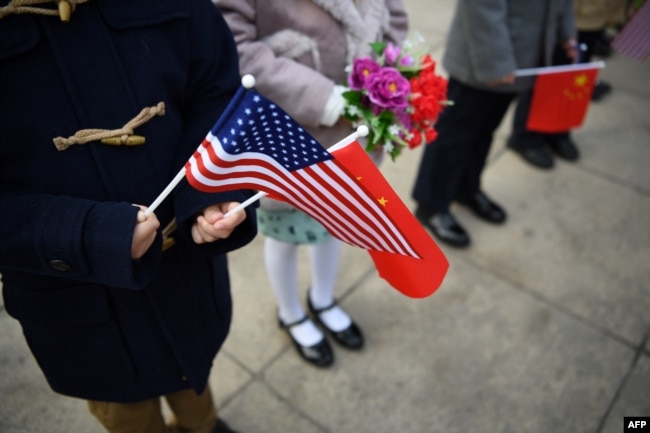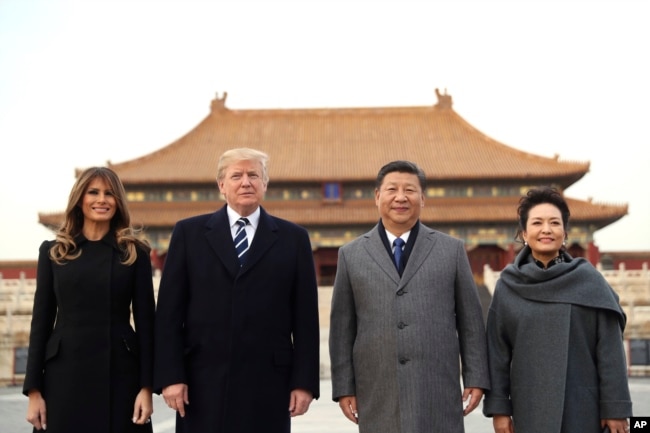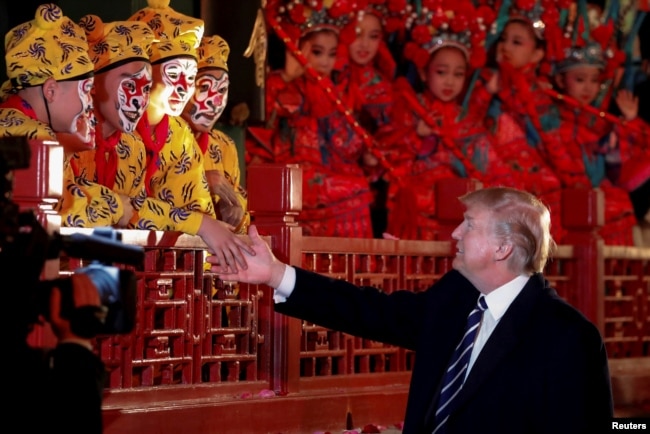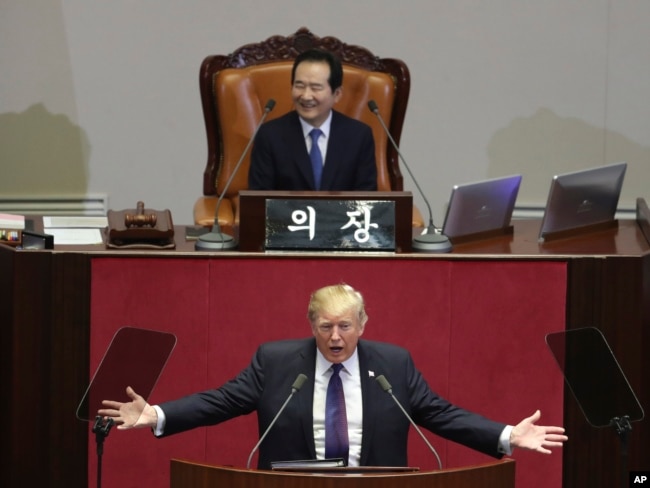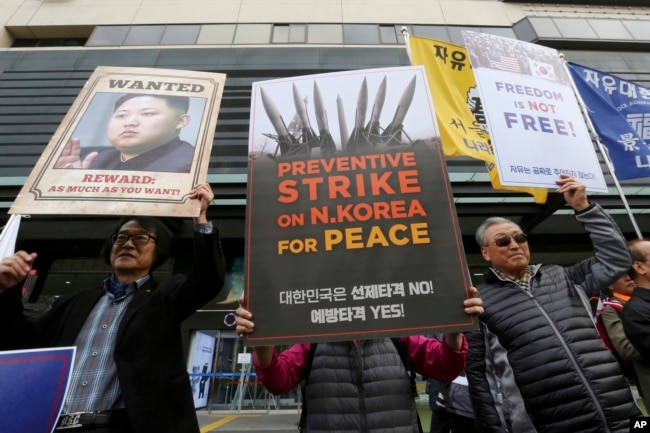
U.S. President Donald Trump will meet with Chinese President Xi Jinping early Thursday, and Trump has said he intends to press Xi to push North Korea to abandon its nuclear program.
Trump arrived in Beijing on Wednesday, his first visit as president to China, North Korea’s closest ally. Trump is expected to call on China to expel North Korean workers from the country and eliminate some of its other dealings with Pyongyang.
China’s trade surplus with the United States has widened by 12.2 percent in the past year, reaching $26.6 billion, according to Chinese customs data.
Business deals
Yet, the Trump administration is showcasing several business deals signed during the China trip, including a deal for China’s biggest online retailer to buy $1.2 billion of American beef and pork.
U.S. Commerce Secretary Wilbur Ross has said such business deals “are a good example” of how the United States “can productively build up our bilateral trade.”
Trump is also to meet Thursday with Chinese Premier Li Keqiang.
The Trumps were also treated to a private visit to the Forbidden City, China’s ancient imperial palace, and they viewed an outdoor opera featuring costumes, music and martial arts.
The U.S. president arrived in Beijing a day after delivering a speech in Seoul, South Korea, in which he called on other nations to unite and “isolate the brutal regime of North Korea.”
“You cannot support, you cannot supply, you cannot accept,” he added.
In that speech to South Korea’s National Assembly, Trump had a forceful message for Pyongyang. He called on leader Kim Jong Un to give up all his nuclear weapons for a chance to step onto “a better path.”
Backing the president’s words was the presence of three U.S. aircraft carrier strike groups and nuclear submarines, which the president said “are appropriately positioned” near the Korean Peninsula.
‘Total failure’
The U.S president referred to North Korea as “a total failure” and a “twisted regime” ruled by a cult and a tyrant who enslaves his people — a characterization certain to provoke a harsh rhetorical reply from Pyongyang.
“The world cannot tolerate the menace of a rogue regime that threatens it with nuclear devastation,” Trump said in his speech. “All responsible nations must join forces to isolate the brutal regime of North Korea to deny it any form of support.”
The U.S. leader had effusive praise for South Korea, contrasting its economic success with the dark situation in the North.
“The more successful South Korea becomes, the more decisively you discredit the dark fantasy at the heart of the Kim regime,” the U.S. president said.
WATCH: Trump Message to North Korean Leader
Trump generally took a more optimistic view of diplomacy during his visit to Seoul, which included meetings with South Korean President Moon Jae-in. He said progress has been made toward defusing heightened tensions in the region, a striking departure from the tone of his tweets in recent weeks suggesting talks with Pyongyang to resolve the nuclear crisis were “a waste of time.”
Speaking Wednesday aboard Air Force One on the approach to Beijing, a senior White House official said Trump and the South Korean leader had reaffirmed their commitment to a coordinated global pressure campaign to bring North Korea back to “authentic denuclearization talks,” while also remaining committed to using a “full range of military capabilities” to defend South Korea and Japan.
‘Sincere steps’ to denuclearize
“Authentic” talks, the U.S. official said, would be without preconditions and would entail North Korea’s agreeing to “reduce the threat, end provocations, and move toward sincere steps to ultimately denuclearize.” Preconditions like refusing to put nuclear weapons on the table, the official said, “is a nonstarter” for the United States.
In a separate statement, White House press secretary Sarah Huckabee Sanders said Trump would also determine whether the United States will designate North Korea as a state sponsor of terrorism before the end of his visit to China.
It is likely Trump will continue to send out tweets while in China, despite a Chinese block on Twitter. Thanks to communications gear aboard Air Force One, the official said, “the president will tweet whatever he wants.” | via VOANews

